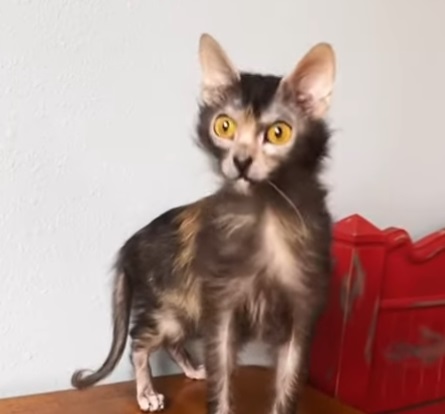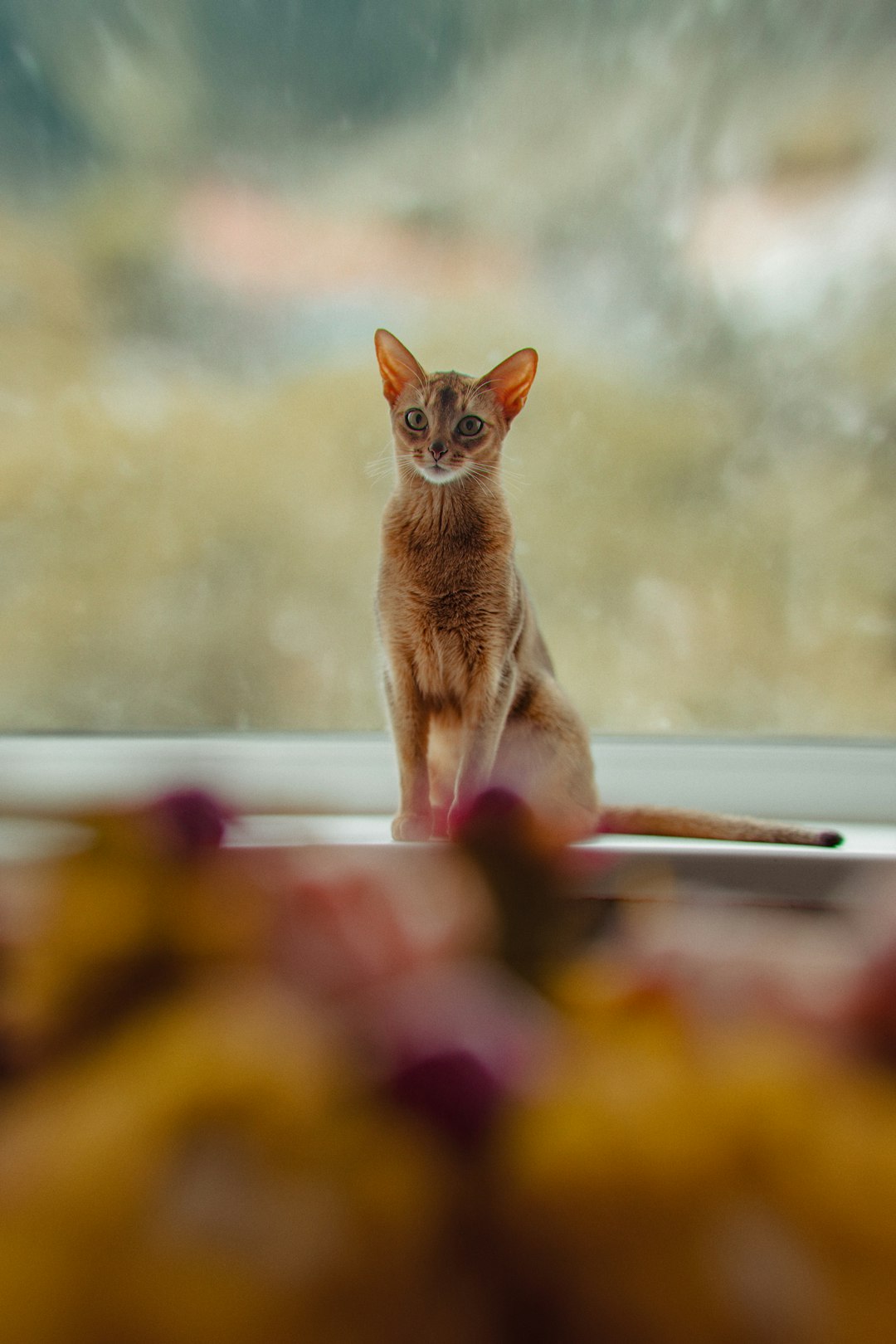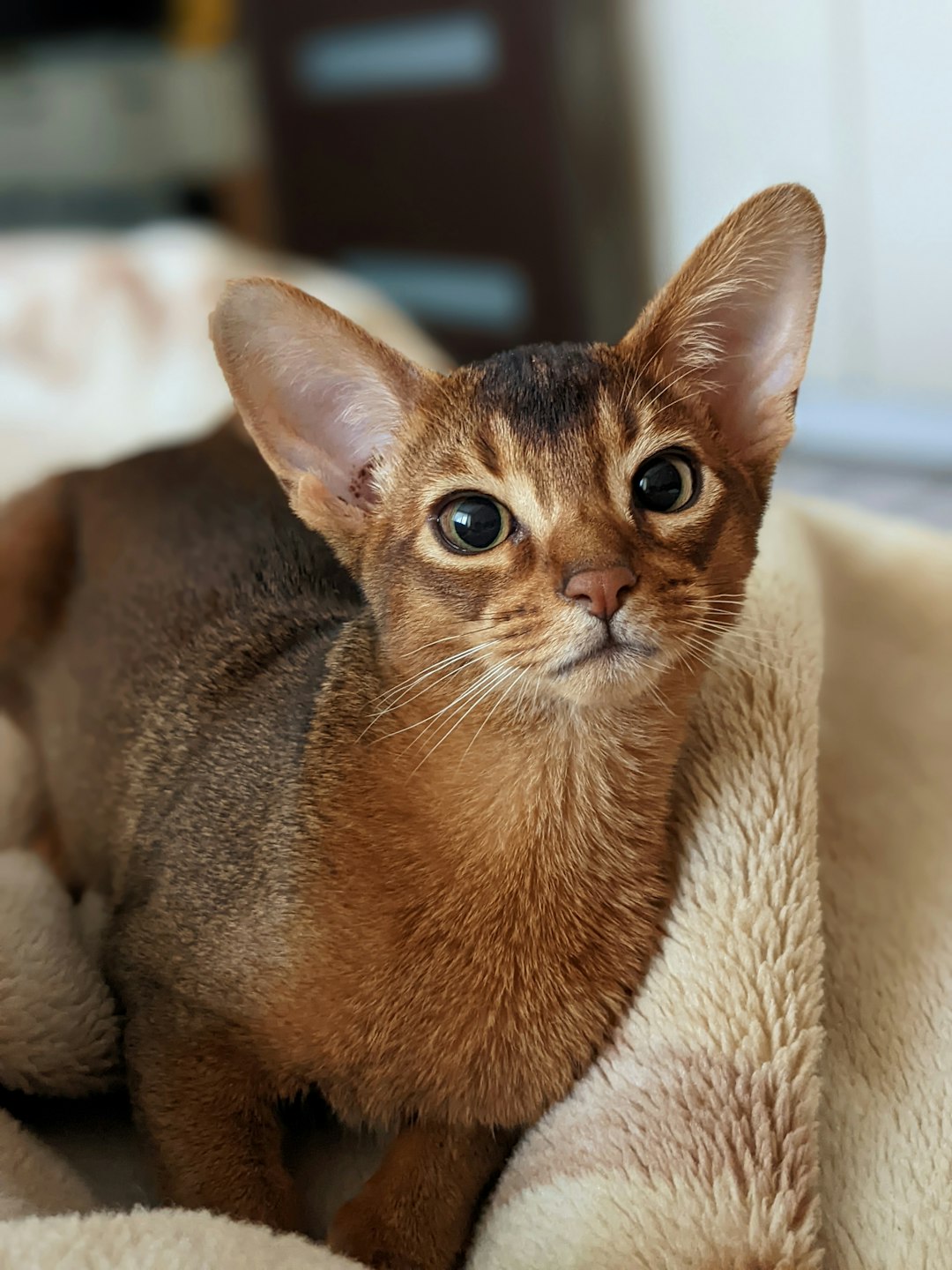Step into the whimsical world of the lykoi cat, where enchanting looks and intriguing origins collide! These feline oddities, often dubbed the “werewolves of the cat world,” boast a striking appearance and a personality that’s as captivating as their backstory. With tales spun from myth and lore, the lykoi cat proves that sometimes reality is wilder than fiction. Curious to uncover what makes these furry little enigmas so special? Buckle up, because the adventure into their fascinating world is just beginning!
Origin of the Lykoi Cat
The origin of the lykoi cat is as mysterious as its striking appearance. These enchanting felines, often dubbed the “werewolf cats,” hail from the United States. Breeding started in the early 2010s, when a few peculiar cats caught the eye of breeders in Tennessee.
Now, let’s break down the origins into bite-sized portions:
- Discovery: The lykoi cat emerged from domestic shorthair cats, specifically those with a unique gene causing their woolly, sparse coat.
- Name: “Lykoi” translates to “wolf” in Greek, perfectly encapsulating their wolfish charm.
- Genetic Marvel: This breed showcases a natural mutation that results in a distinctive coat, leading many to believe in their mythical status.
Interestingly, while the lykoi cat may share a slightly grim appearance, it boasts a friendly demeanor. These curious kitties have certainly evolved from mere oddities to beloved companions in many households across the globe. So, if you’re on the lookout for a pet that comes with a hint of mystery, the lykoi cat might just be your next best friend!
Physical Characteristics of the Lykoi Cat
The lykoi cat truly embodies the essence of a werewolf with its unique and striking appearance. Let’s dive into what makes this breed stand out in the feline crowd.
- Coat: Unlike your typical fluffy furball, the lykoi sports a partially hairless coat. Its coat tends to be sparse, with patches of hair giving it a rugged, wild look, often resembling a werewolf’s scruffy mane.
- Skin: The skin beneath is soft and exposed, hinting at its introduction as a unique breed. The hairlessness typically affects specific areas, leading to a mix of textures.
- Eyes: Expect expressive amber to golden-colored eyes that seem to reflect their adventurous nature.
- Build: These cats boast a muscular frame with a well-defined jawline, further contributing to their mysterious allure.
Here’s how they stack up against other breeds:
| Trait | Lykoi Cat | Siamese Cat |
|---|---|---|
| Coat Type | Partially Hairless | Short and Sleek |
| Eye Color | Amber/Golden | Blue |
| Body Type | Muscular | Sleek |
In summary, the lykoi cat captivates with its striking physical features that make it a conversation starter and a lovable companion all at once!
The Lykoi’s Unique Coat and Skin
Ah, the signature look of the lykoi cat! With its striking, werewolf-like appearance, its coat and skin certainly leave an impression. Let’s peek into the enchanting world of the lykoi cat’s unique features:
- Hairless Sections: Unlike your average house cat, the lykoi has patches of hair loss, especially around the eyes, muzzle, and ears, giving it a mysterious allure.
- Coat Texture: The remaining fur has a coarse texture, akin to that of a wolf—yes, you read that right!
| Feature | Lykoi Cat | Traditional Cat Breeds |
|---|---|---|
| Fur Density | Medium and sparse | Often dense and plush |
| Hair Loss Areas | Cheeks, nose, and ears | No specific patterns |
| Color | Varied (black, gray) | Wide range of patterns |
- Skin Health: Their bare areas require special care. Keep an eye on moisture and avoid excessive sun, as sunburn isn’t a good look for any lykoi cat.
In conclusion, the lykoi cat flaunts a unique coat that’s both fascinating and fun to care for!
Personality Traits of Lykoi Cats
Ah, the enigmatic lykoi cat! These captivating creatures boast a personality as intriguing as their appearance. Get ready for a delightful mix of quirks and charm that makes the lykoi cat a unique companion.
Here’s what you can expect from your furry friend:
- Social Butterflies: Lykoi cats thrive on social interactions with humans and other pets. They’re not the type to sulk in the corner; instead, they’ll cozy up for some love and attention!
- Playful Mischief: These feline jokesters love to engage in playful antics. Keep your toys handy, as they’ll surely keep you entertained with their acrobatic stunts.
- Curious Explorers: The lykoi cat possesses an insatiable curiosity. They’ll investigate every nook and cranny of your home, finding adventures in the most mundane places.
- Affectionate Companions: Lykoi cats adore their human pals and often follow you around. Don’t be surprised if they try to sit on your lap while you’re working.
In summary, when you invite a lykoi cat into your home, you gain a playful, affectionate partner ready to share both laughs and cuddles!
Health Considerations for Lykoi Owners
When it comes to bringing a lykoi cat into your home, understanding their unique health needs is crucial. Unlike your average cat, these furry little werewolves have their own set of quirks that can affect their well-being. Here are some key health considerations that every lykoi owner should keep in mind:
Regular Veterinary Checkups
- Routine exams: Schedule annual visits to catch potential issues early.
- Vaccinations: Ensure they’re up to date on essential vaccinations.
Skin Care
- Lykoi cats have less hair, meaning their skin is more exposed. Regularly check for:
- Dryness: Apply veterinarian-approved moisturizers if necessary.
- Sunburn: Keep them shielded from direct sunlight to prevent painful burns.
Diet and Nutrition
- Opt for high-quality, protein-rich cat food. A balanced diet helps maintain their unique coat and overall health.
Exercise Needs
- Engage your lykoi cat in interactive playtime; they thrive on mental and physical stimulation!
By prioritizing these health considerations, you can help your lykoi cat lead a happy, healthy life, making the mysterious werewolf of the feline world a beloved part of your family. Adopting one is not just taking in a cute face—it’s a commitment to ensuring their well-being!
Myths and Legends Surrounding the Lykoi
Ah, the lykoi cat! With its werewolf-like appearance, it’s no surprise that this unique breed has inspired a fair bit of myth and legend. Let’s dig into some of the fascinating tales:
- Supernatural Origins: Many believe the lykoi cat is a creature of the night, evoking images of ancient spirits or shapeshifters. It’s often associated with mystical folklore—think of a feline that changes form under a full moon!
- Witches’ Pets: In some cultures, the lykoi cat symbolizes witchcraft and magic. People once speculated that witches kept these cats as familiars, further enhancing their allure.
- Health Myths: Some say the lykoi cat possesses healing properties due to its unique coat and skin. However, while they do have a distinct look, wellness is more about care than magic.
- Bad Omens: Despite their charm, the lykoi’s appearance has unfortunately led to tales of bad luck or misfortune, similar to superstitions surrounding black cats.
Don’t let the myths scare you off—embracing a lykoi cat brings joy, not curses! Who knew such a quirky kitty could have such a spellbinding backstory?
The Lykoi in Popular Culture
The lykoi cat isn’t just a peculiar pet; it’s a pop culture sensation! Here’s how this furry fascination has woven itself into our life beyond the litter box:
- Film and Television: Lykoi cats often earn cameos in horror films and series, enhancing their “werewolf” mystique. They bring that perfect blend of curious cuteness and a hint of spookiness!
- Social Media: With their unique features, these cats become instant stars across platforms. Own a lykoi cat? Expect your furry friend to rack up likes faster than a TikTok dance challenge!
- Merchandise: From plushies to artwork, the lykoi cat has inspired a range of products that highlight its quirky charm. If you’re a fan, you can proudly adorn your space with the likeness of this enchanting breed!
- Literature: Authors have picked up on the intrigue surrounding the lykoi cat, weaving them into supernatural tales and children’s stories, accentuating their mysterious origins.
In summary, the lykoi cat is not merely a breed; it’s a cultural phenomenon waiting to be explored!
The Lykoi in Popular Culture
The lykoi cat, famously dubbed the “werewolf of the feline world,” has clawed its way into the hearts of cat enthusiasts and pop culture. And why wouldn’t it? Its eerie appearance sparks a mix of admiration and curiosity.
Where You Can Spot Lykoi Cats:
- Movies & TV Shows: Lykoi cats have made cameo appearances in various films, often as mysterious companions to witches or adventurers. Check and see if your favorite scary movie has included these little were-creatures!
- Social Media Influencers: Thanks to their striking looks, lykoi cats reign as Instagram stars. Just search “#lykoi” and relish in thousands of adorable photos that blend the uncanny with the captivating.
- Books & Comics: Authors tap into the mystique of the lykoi cat, weaving them into tales of fantasy and horror, fueling our imagination even further.
Cultural Impact Comparison Table:
| Aspect | Lykoi Cat | Sphynx Cat | Persian Cat |
|---|---|---|---|
| Popularity | Rising rapidly | Well-known | Classic staple |
| Mystique | Haunted werewolf vibe | Quirky and playful | Regal and elegant |
| Social Media Fame | Exploding on platforms | Established presence | Timeless charm |
In summary, the lykoi cat isn’t just a pet; it’s a cultural phenomenon that hints at the realms of fantasy, making it a perfect companion for those who dare to be different.
Breeding and Adoption of Lykoi Cats
So you’ve fallen under the spell of the lykoi cat? Excellent choice! However, before you rush off to adopt one, let’s chat about breeding and adoption options, as well as what’s hot (and not) in the lykoi cat community.
Adoption Tips:
- Find Reputable Sources: Look for shelters or breeders with a love for the breed.
- Ask Questions: Inquire about the cat’s history, health, and temperament.
- Meet the Parents: This can give you insight into your future pet’s personality.
Breeding Insights:
- Responsible Breeders: A good breeder should ensure genetic health and good practices.
- Lykoi Generation: Most lykoi cats are the result of a natural mutation in domestic cats; breeding should maintain this unique trait.
Comparison – Lykoi vs. Other Breeds:
| Breed | Coat Type | Temperament |
|---|---|---|
| Lykoi Cat | Short, sparse | Playful, social |
| Siamese | Short, sleek | Vocal, affectionate |
| Maine Coon | Long, thick | Gentle, friendly |
| Persian | Long, fluffy | Calm, regal |
In conclusion, whether you adopt or buy, ensure that you provide a loving environment for your lykoi cat to thrive in!
Comparing the Lykoi to Other Cat Breeds
So, how does our charming lykoi cat stack up against other feline friends? Allow me to present a delightful comparison that’ll whisk you away into the world of whiskers and tails!
| Feature | Lykoi Cat | Siamese Cat | Persian Cat |
|---|---|---|---|
| Coat Type | Short, patchy | Short, sleek | Long, luxurious |
| Eye Color | Gold or copper | Deep blue | Varies, often orange |
| Personality | Playful, sociable | Vocal and affectionate | Calm, gentle |
| Health Issues | Moderate | Prone to dental issues | Prone to breathing issues |
Key Differences:
- Unique Coat: The lykoi cat features that distinctive werewolf-like patchiness, unlike the sleek charm of a Siamese or the regal fluffiness of a Persian.
- Playfulness: Lykoi cats shine with their vibrant playfulness, while Siamese cats love a good chat, and Persians prefer to lounge like royalty.
In summary, if you’re seeking a quirky companion, the lykoi cat promises to deliver unique charm and character—an enchanting choice indeed!
Frequently Asked Questions
What exactly is a Lykoi cat?
The Lykoi cat, often humorously dubbed the ‘Werewolf of the Feline World’, is a breed that looks like it walked straight out of a fantasy novel. Known for its patchy fur and werewolf-like appearance, this unique feline originated in Tennessee and is both enchanting and enigmatic. With a mix of domestic cat traits and a dash of wilderness, these cats have a personality that skews towards being playful yet slightly mischievous—think of them as the feline equivalent of a drama queen!
Are Lykoi cats hypoallergenic?
If you’ve ever dreamed of owning a cat without the sneezes, brace yourself: the Lykoi cat isn’t exactly your allergy-friendly dream come true! While they do shed less fur than some breeds, they still produce dander and could make your nose run faster than a cheetah on a caffeine high. So grab that tissue box, because if you’re allergic, you’ll likely have to take a rain check on snuggling this furry werewolf.
How do you care for a Lykoi cat?
Caring for a Lykoi cat is a bit like caring for a celebrity—lots of attention, specific diets, and a few health quirks to keep an eye on! These cats thrive on a balanced diet rich in protein, as their wild ancestry suggests they’re part-time hunters. Grooming is essential since their unique coats require regular brushing to keep them looking fabulous and to reduce shedding. And don’t forget, they love to play, so a variety of toys will keep this little werewolf active and engaged!
Are Lykoi cats friendly with other pets?
Picture a Lykoi cat entering a room filled with other pets; it’s like a scene from a reality TV show! These cats often display friendly tendencies, blending well with both dogs and other felines. However, every cat has its own personality, and some may be more social than others—whereas one may parade around with a crown of confidence, another might play the shy introvert. Gradual introductions are key, ensuring everyone gets along as smoothly as a well-choreographed dance.



